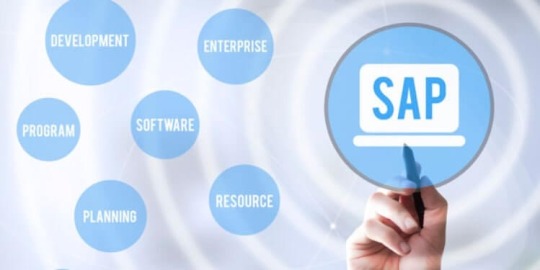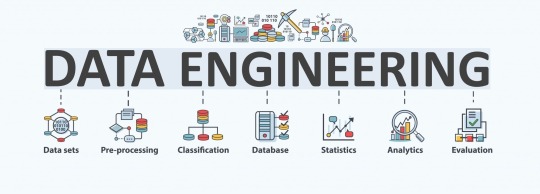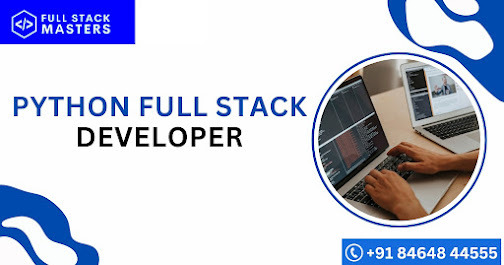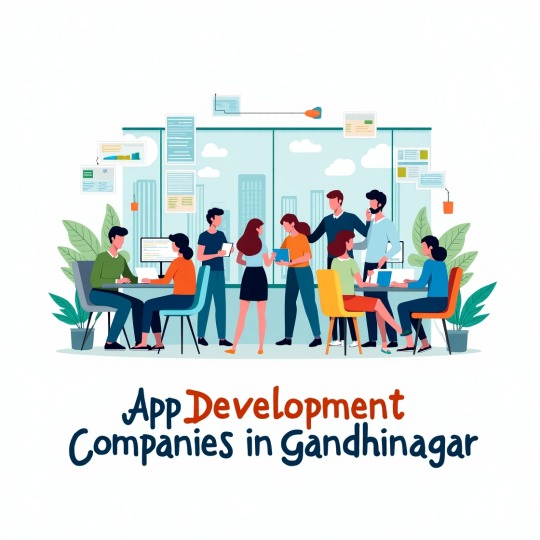#API Testing Market Industry
Explore tagged Tumblr posts
Text
Top 10 In- Demand Tech Jobs in 2025

Technology is growing faster than ever, and so is the need for skilled professionals in the field. From artificial intelligence to cloud computing, businesses are looking for experts who can keep up with the latest advancements. These tech jobs not only pay well but also offer great career growth and exciting challenges.
In this blog, we’ll look at the top 10 tech jobs that are in high demand today. Whether you’re starting your career or thinking of learning new skills, these jobs can help you plan a bright future in the tech world.
1. AI and Machine Learning Specialists
Artificial Intelligence (AI) and Machine Learning are changing the game by helping machines learn and improve on their own without needing step-by-step instructions. They’re being used in many areas, like chatbots, spotting fraud, and predicting trends.
Key Skills: Python, TensorFlow, PyTorch, data analysis, deep learning, and natural language processing (NLP).
Industries Hiring: Healthcare, finance, retail, and manufacturing.
Career Tip: Keep up with AI and machine learning by working on projects and getting an AI certification. Joining AI hackathons helps you learn and meet others in the field.
2. Data Scientists
Data scientists work with large sets of data to find patterns, trends, and useful insights that help businesses make smart decisions. They play a key role in everything from personalized marketing to predicting health outcomes.
Key Skills: Data visualization, statistical analysis, R, Python, SQL, and data mining.
Industries Hiring: E-commerce, telecommunications, and pharmaceuticals.
Career Tip: Work with real-world data and build a strong portfolio to showcase your skills. Earning certifications in data science tools can help you stand out.
3. Cloud Computing Engineers: These professionals create and manage cloud systems that allow businesses to store data and run apps without needing physical servers, making operations more efficient.
Key Skills: AWS, Azure, Google Cloud Platform (GCP), DevOps, and containerization (Docker, Kubernetes).
Industries Hiring: IT services, startups, and enterprises undergoing digital transformation.
Career Tip: Get certified in cloud platforms like AWS (e.g., AWS Certified Solutions Architect).
4. Cybersecurity Experts
Cybersecurity professionals protect companies from data breaches, malware, and other online threats. As remote work grows, keeping digital information safe is more crucial than ever.
Key Skills: Ethical hacking, penetration testing, risk management, and cybersecurity tools.
Industries Hiring: Banking, IT, and government agencies.
Career Tip: Stay updated on new cybersecurity threats and trends. Certifications like CEH (Certified Ethical Hacker) or CISSP (Certified Information Systems Security Professional) can help you advance in your career.
5. Full-Stack Developers
Full-stack developers are skilled programmers who can work on both the front-end (what users see) and the back-end (server and database) of web applications.
Key Skills: JavaScript, React, Node.js, HTML/CSS, and APIs.
Industries Hiring: Tech startups, e-commerce, and digital media.
Career Tip: Create a strong GitHub profile with projects that highlight your full-stack skills. Learn popular frameworks like React Native to expand into mobile app development.
6. DevOps Engineers
DevOps engineers help make software faster and more reliable by connecting development and operations teams. They streamline the process for quicker deployments.
Key Skills: CI/CD pipelines, automation tools, scripting, and system administration.
Industries Hiring: SaaS companies, cloud service providers, and enterprise IT.
Career Tip: Earn key tools like Jenkins, Ansible, and Kubernetes, and develop scripting skills in languages like Bash or Python. Earning a DevOps certification is a plus and can enhance your expertise in the field.
7. Blockchain Developers
They build secure, transparent, and unchangeable systems. Blockchain is not just for cryptocurrencies; it’s also used in tracking supply chains, managing healthcare records, and even in voting systems.
Key Skills: Solidity, Ethereum, smart contracts, cryptography, and DApp development.
Industries Hiring: Fintech, logistics, and healthcare.
Career Tip: Create and share your own blockchain projects to show your skills. Joining blockchain communities can help you learn more and connect with others in the field.
8. Robotics Engineers
Robotics engineers design, build, and program robots to do tasks faster or safer than humans. Their work is especially important in industries like manufacturing and healthcare.
Key Skills: Programming (C++, Python), robotics process automation (RPA), and mechanical engineering.
Industries Hiring: Automotive, healthcare, and logistics.
Career Tip: Stay updated on new trends like self-driving cars and AI in robotics.
9. Internet of Things (IoT) Specialists
IoT specialists work on systems that connect devices to the internet, allowing them to communicate and be controlled easily. This is crucial for creating smart cities, homes, and industries.
Key Skills: Embedded systems, wireless communication protocols, data analytics, and IoT platforms.
Industries Hiring: Consumer electronics, automotive, and smart city projects.
Career Tip: Create IoT prototypes and learn to use platforms like AWS IoT or Microsoft Azure IoT. Stay updated on 5G technology and edge computing trends.
10. Product Managers
Product managers oversee the development of products, from idea to launch, making sure they are both technically possible and meet market demands. They connect technical teams with business stakeholders.
Key Skills: Agile methodologies, market research, UX design, and project management.
Industries Hiring: Software development, e-commerce, and SaaS companies.
Career Tip: Work on improving your communication and leadership skills. Getting certifications like PMP (Project Management Professional) or CSPO (Certified Scrum Product Owner) can help you advance.
Importance of Upskilling in the Tech Industry
Stay Up-to-Date: Technology changes fast, and learning new skills helps you keep up with the latest trends and tools.
Grow in Your Career: By learning new skills, you open doors to better job opportunities and promotions.
Earn a Higher Salary: The more skills you have, the more valuable you are to employers, which can lead to higher-paying jobs.
Feel More Confident: Learning new things makes you feel more prepared and ready to take on tougher tasks.
Adapt to Changes: Technology keeps evolving, and upskilling helps you stay flexible and ready for any new changes in the industry.
Top Companies Hiring for These Roles
Global Tech Giants: Google, Microsoft, Amazon, and IBM.
Startups: Fintech, health tech, and AI-based startups are often at the forefront of innovation.
Consulting Firms: Companies like Accenture, Deloitte, and PwC increasingly seek tech talent.
In conclusion, the tech world is constantly changing, and staying updated is key to having a successful career. In 2025, jobs in fields like AI, cybersecurity, data science, and software development will be in high demand. By learning the right skills and keeping up with new trends, you can prepare yourself for these exciting roles. Whether you're just starting or looking to improve your skills, the tech industry offers many opportunities for growth and success.
#Top 10 Tech Jobs in 2025#In- Demand Tech Jobs#High paying Tech Jobs#artificial intelligence#datascience#cybersecurity
2 notes
·
View notes
Text
What Are the Costs Associated with Fintech Software Development?

The fintech industry is experiencing exponential growth, driven by advancements in technology and increasing demand for innovative financial solutions. As organizations look to capitalize on this trend, understanding the costs associated with fintech software development becomes crucial. Developing robust and secure applications, especially for fintech payment solutions, requires significant investment in technology, expertise, and compliance measures. This article breaks down the key cost factors involved in fintech software development and how businesses can navigate these expenses effectively.
1. Development Team and Expertise
The development team is one of the most significant cost drivers in fintech software development. Hiring skilled professionals, such as software engineers, UI/UX designers, quality assurance specialists, and project managers, requires a substantial budget. The costs can vary depending on the team’s location, expertise, and experience level. For example:
In-house teams: Employing full-time staff provides better control but comes with recurring costs such as salaries, benefits, and training.
Outsourcing: Hiring external agencies or freelancers can reduce costs, especially if the development team is located in regions with lower labor costs.
2. Technology Stack
The choice of technology stack plays a significant role in the overall development cost. Building secure and scalable fintech payment solutions requires advanced tools, frameworks, and programming languages. Costs include:
Licenses and subscriptions: Some technologies require paid licenses or annual subscriptions.
Infrastructure: Cloud services, databases, and servers are essential for hosting and managing fintech applications.
Integration tools: APIs for payment processing, identity verification, and other functionalities often come with usage fees.
3. Security and Compliance
The fintech industry is heavily regulated, requiring adherence to strict security standards and legal compliance. Implementing these measures adds to the development cost but is essential to avoid potential fines and reputational damage. Key considerations include:
Data encryption: Robust encryption protocols like AES-256 to protect sensitive data.
Compliance certifications: Obtaining certifications such as PCI DSS, GDPR, and ISO/IEC 27001 can be costly but are mandatory for operating in many regions.
Security audits: Regular penetration testing and vulnerability assessments are necessary to ensure application security.
4. Customization and Features
The complexity of the application directly impacts the cost. Basic fintech solutions may have limited functionality, while advanced applications require more extensive development efforts. Common features that add to the cost include:
User authentication: Multi-factor authentication (MFA) and biometric verification.
Real-time processing: Handling high volumes of transactions with minimal latency.
Analytics and reporting: Providing users with detailed financial insights and dashboards.
Blockchain integration: Leveraging blockchain for enhanced security and transparency.
5. User Experience (UX) and Design
A seamless and intuitive user interface is critical for customer retention in the fintech industry. Investing in high-quality UI/UX design ensures that users can navigate the platform effortlessly. Costs in this category include:
Prototyping and wireframing.
Usability testing.
Responsive design for compatibility across devices.
6. Maintenance and Updates
Fintech applications require ongoing maintenance to remain secure and functional. Post-launch costs include:
Bug fixes and updates: Addressing issues and releasing new features.
Server costs: Maintaining and scaling infrastructure to accommodate user growth.
Monitoring tools: Real-time monitoring systems to track performance and security.
7. Marketing and Customer Acquisition
Once the fintech solution is developed, promoting it to the target audience incurs additional costs. Marketing strategies such as digital advertising, influencer partnerships, and content marketing require significant investment. Moreover, onboarding users and providing customer support also contribute to the total cost.
8. Geographic Factors
The cost of fintech software development varies significantly based on geographic factors. Development in North America and Western Europe tends to be more expensive compared to regions like Eastern Europe, South Asia, or Latin America. Businesses must weigh the trade-offs between cost savings and access to high-quality talent.
9. Partnering with Technology Providers
Collaborating with established technology providers can reduce development costs while ensuring top-notch quality. For instance, Xettle Technologies offers comprehensive fintech solutions, including secure APIs and compliance-ready tools, enabling businesses to streamline development processes and minimize risks. Partnering with such providers can save time and resources while enhancing the application's reliability.
Cost Estimates
While costs vary depending on the project's complexity, here are rough estimates:
Basic applications: $50,000 to $100,000.
Moderately complex solutions: $100,000 to $250,000.
Highly advanced platforms: $250,000 and above.
These figures include development, security measures, and initial marketing efforts but may rise with added features or broader scope.
Conclusion
Understanding the costs associated with fintech software development is vital for effective budgeting and project planning. From assembling a skilled team to ensuring compliance and security, each component contributes to the total investment. By leveraging advanced tools and partnering with experienced providers like Xettle Technologies, businesses can optimize costs while delivering high-quality fintech payment solutions. The investment, though significant, lays the foundation for long-term success in the competitive fintech industry.
2 notes
·
View notes
Text
Best IT Courses In Bhubaneswar:- seeree services pvt ltd.
Introduction:- seeree is one of the best IT training institute and Software industry, features completely Industrial training on Python , PHP , .NET , C Programming,Java , IOT , AI , GD PI , ORACLE and ALL CERTIFICATION COURSES as well as provides seminar,cultural activity and jobs
Courses we provided:- 1) Java Fullstack 2) Python Fullstack 3) PHP Fullstack 4) Preplacement Training & Sp. Eng 5) .NET Fulstack 6) SEO/Digital Marketing 7) SAP 8) MERN 9) Software Testing 10)Data Analyst 11)Data Science 12)Data Engineering 13)PGDCA 14)Tally 15)Graphics Design
Course1:- Java Fullstack

A Class in Java is where we teach objects how to behave. Education at seeree means way to success. The way of teaching by corporate trainers will bloom your career. We have the best java training classes in Bhubaneswar. 100% Placement Support. Job Support Post Training. This course will give you a firm foundation in Java, commonly used programming language. Java technology is wide used currently. Java is a programming language and it is a platform. Hardware or software environment in which a program runs, known as a platform. Since Java has its own Runtime Environment (JRE) and API, it is called platform. Java programming language is designed to meet the challenges of application development in the context of heterogeneous, network-wide distributed environment. Java is an object-oriented programming (OOP) language that uses many common elements from other OOP languages, such as C++. Java is a complete platform for software development. Java is suitable for enterprise large scale applications.]
Course2:- Python Fullstack

Seeree offers best python course in Bhubaneswar with 100% job assurance and low fee. Learn from real time corporate trainers and experienced faculties. Groom your personality with our faculty. Seeree helps to build confidence in students to give exposure to their skills to the company.
Python is dynamically typed , compiled and interpreted , procedural and object oriented , generalized , general-purpose , platform independent programming language. Python is a high-level, structured, open-source programming language that can be used for a wide variety of programming tasks.
Course3:- PHP Fullstack

seeree is the best training institute which provide PHP Training courses in bhubaneswar and all over odisha We aim the students to learn and grow altogether with the need of IT firms.
PHP is a server scripting language, and a powerful tool for making dynamic and interactive Web pages. PHP is a widely-used, free, and efficient alternative to competitors such as Microsoft's ASP.
Course4:- Preplacement Training & Sp. Eng

Welcome to SEEREE Institute, where excellence meets opportunity. At SEEREE, we are dedicated to providing a transformative learning experience that empowers students to achieve their goals and contribute to a brighter future.
Our institute offers cutting-edge courses designed to meet the needs of the ever-evolving global landscape. With a team of highly qualified instructors and state-of-the-art facilities, we ensure a supportive and inspiring environment for learning and growth.
Whether you're here to develop new skills, explore innovative fields, or pursue personal and professional success, SEEREE Institute is the perfect place to begin your journey. Thank you for choosing us, and we look forward to being a part of your success story.
Course5:- .NET Fullstack

Seeree offers best .NET course in Bhubaneswar with 100% job assurance and low fee. Learn from real time corporate trainers and experienced faculties. Groom your personality with our faculty. Seeree helps to build confidence in students to give exposure to their skills to the company.
Course6:- SEO/Digital Marketing

In today's fast-paced digital world, businesses thrive on visibility, engagement, and strategic online presence. At SEEREE, we empower you with the skills and knowledge to master the art of Search Engine Optimization (SEO) and Digital Marketing.
Our comprehensive program is designed for beginners and professionals alike, covering everything from keyword research, on-page and off-page SEO, and content marketing, to social media strategies, PPC campaigns, and analytics.
With hands-on training, real-world projects, and guidance from industry experts, we ensure you're equipped to drive measurable results and excel in this dynamic field.
Join us at SEEREE Institute and take the first step towards becoming a leader in the digital marketing landscape!"
Course7:- SAP

SAP refers to Systems, Applications, and Products in Data Processing. Some of the most common subjects covered in these courses include human resource software administration, database management, and business training. Obtaining SAP certification can be done on a stand-alone basis or as part of a degree program.
Course8:- MERN

Seeree offers the best MERN course in Bhubaneswar with 100% job assurance and low fees. Learn from real-time corporate trainers and experienced faculty. Seeree helps students build confidence and gain skills to excel in company roles.
Are you ready to step into the exciting world of web development? At SEEREE, we bring you a comprehensive MERN Stack course that equips you with the skills to build modern, dynamic, and responsive web applications from start to finish.
The MERN Stack—comprising MongoDB, Express.js, React.js, and Node.js—is one of the most sought-after technologies in the web development industry. Our program is designed to help you master each component of the stack, from creating robust backends and managing databases to crafting dynamic frontends and seamless APIs.
Course9:- Software Testing

Seeree offers best Testing course in Bhubaneswar with 100% job assurance and low fee. Learn from real time corporate trainers and experienced faculties. Groom your personality with our faculty. Seeree helps to build confidence in students to give exposure to their skills to the company.
In the fast-paced world of software development, ensuring the quality and reliability of applications is crucial. At SEEREE, we offer a comprehensive Software Testing course designed to equip you with the skills and techniques needed to excel in this essential field.
Our program covers all aspects of software testing, from manual testing fundamentals to advanced automation tools and frameworks like Selenium, JIRA, and TestNG. You’ll learn to identify bugs, write test cases, execute test scripts, and ensure software meets high-quality standards.
With hands-on training, real-world scenarios, and guidance from experienced industry professionals, you’ll be prepared to take on roles like Quality Assurance Engineer, Test Analyst, and Automation Tester.
Join SEEREE Institute and gain the expertise to become a key player in delivering flawless software solutions. Your journey to a rewarding career in software testing starts here!"
Course10:- Data Analyst

Seeree offers the best Data Analyst course in Bhubaneswar with 100% job assurance and affordable fees. Our comprehensive curriculum is designed to cover all aspects of data analysis, from data collection and cleaning to advanced data visualization techniques. Learn from real-time corporate trainers and experienced faculty members who bring industry insights into the classroom. Enhance your analytical skills and boost your career prospects with hands-on projects and real-world case studies. Our faculty also focuses on grooming your personality and soft skills, ensuring you are well-prepared for interviews and workplace environments. Seeree is dedicated to building confidence in students, providing them with the necessary exposure to showcase their skills to top companies in the industry.
Course11:- Data Science

Seeree offers the best Data Science course in Bhubaneswar with 100% job assurance and affordable fees. Our comprehensive curriculum is designed to cover all aspects of data science, from data collection and cleaning to advanced data visualization techniques. Learn from real-time corporate trainers and experienced faculty members who bring industry insights into the classroom. Enhance your analytical skills and boost your career prospects with hands-on projects and real-world case studies. Our faculty also focuses on grooming your personality and soft skills, ensuring you are well-prepared for interviews and workplace environments. Seeree is dedicated to building confidence in students, providing them with the necessary exposure to showcase their skills to top companies in the industry.
Course12:- Data Engineering

In the era of big data, the ability to design, build, and manage scalable data infrastructure is one of the most in-demand skills in the tech industry. At SEEREE, we are proud to offer a comprehensive Data Engineering course that prepares you for a career at the forefront of data-driven innovation.
Our program covers essential topics such as data modeling, ETL processes, data warehousing, cloud platforms, and tools like Apache Spark, Kafka, and Hadoop. You’ll learn how to collect, organize, and transform raw data into actionable insights, enabling businesses to make smarter decisions.
With real-world projects, expert mentorship, and hands-on experience with the latest technologies, we ensure that you are industry-ready. Whether you’re starting fresh or upskilling, this program will empower you to unlock opportunities in the rapidly growing field of data engineering.
Join SEEREE Institute and take the first step toward building the data pipelines that power tomorrow’s technology!"
Course13:- PGDCA

Seeree offers the best MERN course in Bhubaneswar with 100% job assurance and low fees. Learn from real-time corporate trainers and experienced faculty. Seeree helps students build confidence and gain skills to excel in company roles.
In today’s digital age, computer applications are at the heart of every industry, driving innovation and efficiency. At SEEREE Institute, our Post Graduate Diploma in Computer Applications (PGDCA) program is designed to provide you with in-depth knowledge and hands-on skills to excel in the IT world.
This program offers a comprehensive curriculum covering programming languages, database management, web development, software engineering, networking, and more. Whether you aim to enhance your technical expertise or step into a rewarding career in IT, PGDCA at SEEREE equips you with the tools to succeed.
With expert faculty, state-of-the-art labs, and real-world projects, we ensure that you gain practical experience and a strong theoretical foundation. By the end of the program, you’ll be prepared for roles such as software developer, system analyst, IT manager, or database administrator.
Course14:- Tally

Seeree offers the best Tally course in Bhubaneswar with 100% job assurance and low fees. Learn from real-time corporate trainers and experienced faculty. Seeree helps students build confidence and gain skills to excel in company roles.
In today’s business world, efficient financial management is key to success, and Tally is one of the most trusted tools for accounting and financial operations. At SEEREE Institute, we offer a comprehensive Tally course designed to equip you with the skills needed to manage business finances effortlessly.
Our program covers everything from the basics of accounting and bookkeeping to advanced features like GST compliance, inventory management, payroll processing, and generating financial reports. With hands-on training and real-world applications, you’ll gain practical expertise in using Tally effectively for businesses of any scale.
Whether you're a student, a professional, or a business owner, our Tally program is tailored to meet your needs and enhance your career prospects in the fields of accounting and finance.
Course15:- Graphics Design

In the world of creativity and communication, graphic design plays a vital role in bringing ideas to life. At SEEREE Institute, our Graphic Design course is tailored to help you unlock your creative potential and master the art of visual storytelling.
Our program covers a wide range of topics, including design principles, color theory, typography, branding, and user interface design. You’ll gain hands-on experience with industry-standard tools like Adobe Photoshop, Illustrator, and InDesign, enabling you to create stunning visuals for print, digital media, and beyond.
Whether you're an aspiring designer or a professional looking to sharpen your skills, our expert trainers and real-world projects will provide you with the knowledge and confidence to excel in this competitive field.
Join SEEREE Institute and start your journey toward becoming a skilled graphic designer. Let’s design your future together!"
2 notes
·
View notes
Text
Key Components Influencing the Cost for Developing a Binance Clone

Developing a cryptocurrency exchange platform similar to Binance requires careful consideration of various components that significantly influence development costs. Binance, known for its robust trading engine, extensive cryptocurrency support, advanced security measures, and user-friendly interface, sets a high standard in the industry. Entrepreneurs and businesses embarking on the journey to create a Binance clone must understand the key components and factors that impact development expenses. This guide explores essential components and considerations influencing the cost for developing a Binance clone, providing valuable insights and strategies for effective budgeting and planning.
1. Trading Engine
The trading engine is the heart of any cryptocurrency exchange platform, including a Binance clone. It facilitates the matching of buy and sell orders in real-time, ensuring efficient and secure transactions. The complexity and scalability of the trading engine significantly impact development costs:
Basic Order Matching: Implementing basic order matching algorithms is more cost-effective but may limit scalability during peak trading periods.
Advanced Order Types: Supporting advanced order types such as limit orders, market orders, stop-limit orders, and conditional orders requires sophisticated algorithms and increases development complexity and costs.
Scalability: Designing a scalable trading engine capable of handling high transaction volumes and market volatility entails additional development efforts and infrastructure costs.
2. User Interface (UI) and User Experience (UX)
A well-designed UI/UX is essential for attracting and retaining users on a cryptocurrency exchange platform. Factors influencing UI/UX design and development costs include:
Responsive Design: Ensuring seamless user experience across devices (desktop, mobile, tablet) requires adaptive and responsive design practices.
Intuitive Navigation: Simplifying navigation flows and enhancing user interaction through intuitive design elements and visual cues improves usability but adds to development costs.
Customization: Offering customizable dashboard layouts, theme options, and personalized user settings enhances user engagement but requires additional design and development efforts.
3. Security Features
Security is paramount in cryptocurrency exchanges to protect user funds, data, and transactions from cyber threats and vulnerabilities. Key security features influencing development costs include:
Encryption: Implementing robust encryption protocols (e.g., SSL/TLS) to secure data transmission and storage adds to development expenses.
Two-Factor Authentication (2FA): Integrating 2FA for user accounts enhances security but requires additional development and integration efforts.
Cold Wallet Storage: Supporting cold wallet storage solutions for storing a significant portion of user funds offline enhances security but entails setup and maintenance costs.
Security Audits: Conducting regular security audits and penetration testing to identify and mitigate potential vulnerabilities and compliance risks is crucial but adds to ongoing operational costs.
4. Cryptocurrency Support and Wallet Integration
Supporting a wide range of cryptocurrencies and integrating seamless wallet solutions are essential for catering to diverse user preferences and market demands:
Cryptocurrency Integration: Adding support for multiple cryptocurrencies (e.g., Bitcoin, Ethereum, Ripple) requires integration with blockchain networks and APIs, influencing development complexity and costs.
Wallet Integration: Seamless integration with external cryptocurrency wallets for deposits, withdrawals, and transfers enhances user convenience but necessitates additional development and testing efforts.
5. Regulatory Compliance
Navigating regulatory requirements and ensuring compliance with local and international laws is critical for operating a legitimate and secure cryptocurrency exchange:
KYC/AML Procedures: Implementing robust Know Your Customer (KYC) and Anti-Money Laundering (AML) procedures to verify user identities and monitor transactions for suspicious activities incurs development and operational costs.
Legal Consultations: Seeking legal counsel to interpret and comply with evolving regulatory frameworks adds to initial setup costs and ongoing compliance efforts.
6. Admin Panel and Backend Infrastructure
The admin panel and backend infrastructure form the operational backbone of a cryptocurrency exchange platform, influencing development costs in various ways:
Admin Dashboard: Developing a comprehensive admin dashboard for managing users, transactions, security settings, and platform operations requires backend development expertise and increases development costs.
Scalable Architecture: Designing a scalable backend architecture with load balancing, database management, and server infrastructure provisioning supports high availability and performance but requires initial investment in infrastructure setup and maintenance.
7. Customer Support and Community Engagement
Providing responsive customer support and fostering community engagement are crucial for user retention and platform credibility:
Support Channels: Establishing multiple support channels (e.g., ticketing system, live chat, email support) to address user inquiries and issues requires ongoing resource allocation and operational costs.
Community Management: Investing in community management strategies, including social media engagement, forums, and educational content, enhances user trust and platform adoption but adds to marketing and operational expenses.
Conclusion
Developing a Binance clone involves navigating various complexities and considerations that impact development costs. By understanding the key components influencing costs—such as the trading engine, UI/UX design, security features, cryptocurrency support, regulatory compliance, backend infrastructure, and customer support—entrepreneurs and businesses can effectively budget, plan, and execute their cryptocurrency exchange project.
2 notes
·
View notes
Text
Python FullStack Developer Jobs

Introduction :
A Python full-stack developer is a professional who has expertise in both front-end and back-end development using Python as their primary programming language. This means they are skilled in building web applications from the user interface to the server-side logic and the database. Here’s some information about Python full-stack developer jobs.
Job Responsibilities:
Front-End Development: Python full-stack developers are responsible for creating and maintaining the user interface of a web application. This involves using front-end technologies like HTML, CSS, JavaScript, and various frameworks like React, Angular, or Vue.js.
Back-End Development: They also work on the server-side of the application, managing databases, handling HTTP requests, and building the application’s logic. Python, along with frameworks like Django, Flask, or Fast API, is commonly used for back-end development.
Database Management: Full-stack developers often work with databases like PostgreSQL, MySQL, or NoSQL databases like MongoDB to store and retrieve data.
API Development: Creating and maintaining APIs for communication between the front-end and back-end systems is a crucial part of the job. RESTful and Graph QL APIs are commonly used.
Testing and Debugging: Full-stack developers are responsible for testing and debugging their code to ensure the application’s functionality and security.
Version Control: Using version control systems like Git to track changes and collaborate with other developers.
Deployment and DevOps: Deploying web applications on servers, configuring server environments, and implementing continuous integration/continuous deployment (CI/CD) pipelines.
Security: Ensuring the application is secure by implementing best practices and security measures to protect against common vulnerabilities.
Skills and Qualifications:
To excel in a Python full-stack developer role, you should have the following skills and qualifications:
Proficiency in Python programming.
Strong knowledge of front-end technologies (HTML, CSS, JavaScript) and frameworks.
Expertise in back-end development using Python and relevant web frameworks.
Experience with databases and data modeling.
Knowledge of version control systems (e.g., Git).
Familiarity with web servers and deployment.
Understanding of web security and best practices.
Problem-solving and debugging skills.
Collaboration and teamwork.
Continuous learning and staying up to date with the latest technologies and trends.
Job Opportunities:
Python full-stack developers are in demand in various industries, including web development agencies, e-commerce companies, startups, and large enterprises. Job titles you might come across include Full-Stack Developer, Python Developer, Web Developer, or Software Engineer.
The job market for Python full-stack developers is generally favorable, and these professionals can expect competitive salaries, particularly with experience and a strong skill set. Many companies appreciate the versatility of full-stack developers who can work on both the front-end and back-end aspects of their web applications.
To find Python full-stack developer job opportunities, you can check job boards, company career pages, and professional networking sites like LinkedIn. Additionally, you can work with recruitment agencies specializing in tech roles or attend tech job fairs and conferences to network with potential employers.
Python full stack developer jobs offer a range of advantages to those who pursue them. Here are some of the key advantages of working as a Python full stack developer:
Versatility: Python is a versatile programming language, and as a full stack developer, you can work on both front-end and back-end development, as well as other aspects of web development. This versatility allows you to work on a wide range of projects and tasks.
High demand: Python is one of the most popular programming languages, and there is a strong demand for Python full stack developers. This high demand leads to ample job opportunities and competitive salaries.
Job security: With the increasing reliance on web and mobile applications, the demand for full stack developers is expected to remain high. This job security provides a sense of stability and long-term career prospects.
Wide skill set: As a full stack developer, you gain expertise in various technologies and frameworks for both front-end and back-end development, including Django, Flask, JavaScript, HTML, CSS, and more. This wide skill set makes you a valuable asset to any development team.
Collaboration: Full stack developers often work closely with both front-end and back-end teams, fostering collaboration and communication within the development process. This can lead to a more holistic understanding of projects and better teamwork.
Problem-solving: Full stack developers often encounter challenges that require them to think critically and solve complex problems. This aspect of the job can be intellectually stimulating and rewarding.
Learning opportunities: The tech industry is constantly evolving, and full stack developers have the opportunity to continually learn and adapt to new technologies and tools. This can be personally fulfilling for those who enjoy ongoing learning.
Competitive salaries: Python full stack developers are typically well-compensated due to their valuable skills and the high demand for their expertise. Salaries can vary based on experience, location, and the specific organization.
Entrepreneurial opportunities: With the knowledge and skills gained as a full stack developer, you can also consider creating your own web-based projects or startup ventures. Python’s ease of use and strong community support can be particularly beneficial in entrepreneurial endeavors.
Remote work options: Many organizations offer remote work opportunities for full stack developers, allowing for greater flexibility in terms of where you work. This can be especially appealing to those who prefer a remote or freelance lifestyle.
Open-source community: Python has a vibrant and active open-source community, which means you can easily access a wealth of libraries, frameworks, and resources to enhance your development projects.
Career growth: As you gain experience and expertise, you can advance in your career and explore specialized roles or leadership positions within development teams or organizations.

Conclusion:
Python full stack developer jobs offer a combination of technical skills, career stability, and a range of opportunities in the tech industry. If you enjoy working on both front-end and back-end aspects of web development and solving complex problems, this career path can be a rewarding choice.
Thanks for reading, hopefully you like the article if you want to take Full stack master's course from our Institute, please attend our live demo sessions or contact us: +918464844555 providing you with the best Online Full Stack Developer Course in Hyderabad with an affordable course fee structure.
2 notes
·
View notes
Text
How to Build a Zomato Clone App: A Step-by-Step Guide

Building a successful food delivery app like Zomato requires careful planning and execution. With the growing demand for convenient and seamless food delivery services, developing a Zomato clone app can be a lucrative business opportunity. In this step-by-step guide, we will walk you through the process of building your own Zomato clone app, from market research and design to development and launch.
Whether you are an aspiring entrepreneur or an existing restaurant owner looking to expand your business, this guide will provide you with all the information you need to create a successful food delivery app and tap into the booming food delivery industry.
Here's a step-by-step guide to help you build a Zomato-like app:
Market Research
Understand your target audience and market. Analyze Zomato and other similar apps to identify features and functionalities.
Legal Compliance
Check local laws and regulations related to food delivery and online platforms. Obtain necessary licenses and permissions.
Define Features
List the features you want in your app, such as user registration, restaurant listing, menu display, reviews, ratings, order placement, payment processing, etc.
Choose Technology Stack
Select the technology stack for your app (front-end and back-end frameworks, database, etc.).
Wireframing and Design
Create wireframes to outline the app's structure. Design the user interface (UI) and user experience (UX).
Backend Development
Set up the server and database. Implement user authentication, authorization, and data storage.
Frontend Development
Based on the design, create the user interface. Implement features like user registration, restaurant listing, menu display, and order placement.
Integrate Maps and Location Services
Use mapping APIs to provide location-based services for finding restaurants and tracking deliveries.
Implement Search and Filters
Allow users to search for restaurants based on various criteria like cuisine, location, ratings, etc.
User Reviews and Ratings
Implement an application for users to submit restaurant reviews and ratings.
Order Placement and Checkout
Develop a seamless and secure process for users to place orders and make payments.
Notifications
Set up push notifications to keep users informed about order status, promotions, etc.
Payment Integration
Integrate secure payment gateways for seamless transactions.
Testing
Perform extensive testing to investigate and fix bugs. Check out the app on different devices and screen sizes.
Deployment
Launch the app to the App Store and Google Play Store.
Monitor and Maintain
Monitor app performance and address any issues promptly. Maintain the app's security patches.
Building a Zomato clone app requires a strategic approach, technical proficiency, and a commitment to delivering an outstanding user experience. By combining these factors, you can create a successful food delivery and restaurant discovery app that captivates users and establishes a strong presence in the competitive market.
What is a Zomato Clone App? & How it Works!
A Zomato clone app is a customized application that replicates the features and functionalities of the popular food delivery and restaurant discovery platform, Zomato. Creating a Zomato clone allows entrepreneurs and businesses to enter the food delivery and restaurant aggregator market with their version of a similar service.
Here's an overview of how a Zomato clone app typically works:
User Registration and Profile Creation
Users download the Zomato clone app from an app store. They register by providing basic details or logging in through social media accounts. Users create profiles where they can manage their preferences, addresses, and payment methods.
Restaurant Profiles
Users can view detailed profiles of restaurants, including menus, prices, operating hours, reviews, and ratings.
Order Placement
Users can select items from the restaurant's menu and add them to their cart. They proceed to checkout, where they confirm the order, select the delivery address, and choose a payment method.
Payment Processing
The Zomato clone app integrates with secure payment gateways to process transactions. Users can make payments using various methods, including credit/debit cards, digital wallets, and sometimes cash on delivery.
Order Confirmation
Users receive an order confirmation with details such as estimated delivery time and order number. The app may also provide real-time tracking of the order's status.
Delivery or Pickup
For food delivery, a delivery partner is assigned to pick up the order and deliver it to the specified address. Users can track the delivery in real-time. For pickup, users receive a notification when the order is ready for collection.
User Feedback and Ratings
After the order is delivered or picked up, users can provide feedback and ratings on the overall experience.
Admin Dashboard
An admin dashboard allows the platform owner to manage and monitor user activity, restaurant partnerships, and overall app performance. It also provides tools for customer support and analytics.
Marketing and Promotions
The Zomato clone app may incorporate features for promotional activities, discounts, and loyalty programs to attract and retain users.
Building a Zomato clone involves careful consideration of each feature and ensuring a seamless user experience throughout the entire process, from restaurant discovery to order delivery or pickup. Integration with reliable payment gateways and real-time tracking contributes to the overall success and user satisfaction of the app.
Benefits of Developing a Zomato Clone App
Developing a Zomato clone app offers a myriad of benefits, leveraging the success of an established food delivery app and restaurant discovery platform. Here are key advantages that contribute to the appeal of creating a Zomato clone:
Rapid Market Entry and Brand Recognition
Building a Zomato clone facilitates a swift entry into the competitive food delivery market. By replicating a proven business model, your app gains immediate brand recognition. Users familiar with Zomato are more likely to adopt your platform, accelerating user acquisition.
Comprehensive Feature Set
Zomato is renowned for its comprehensive feature set, including restaurant listings, reviews, ratings, real-time tracking, and secure payment options.
Established User Base
A Zomato clone can attract users who are already accustomed to using similar platforms. This existing user base provides a solid foundation for user engagement and adoption, giving your app a head start in terms of audience reach.
Monetization Strategies
Zomato has established effective monetization strategies, such as charging restaurants a commission on orders and offering premium features. By adopting these proven revenue models, your app can generate income from day one.
Time and Cost Efficiency
Developing a Zomato clone is a time-efficient and cost-effective approach compared to building a unique concept from scratch. Reusing existing concepts and technologies reduces development time and expenses.
Scalability Options
As your user base grows, a Zomato clone provides scalability options. You can expand your infrastructure and services to accommodate increased demand, ensuring a seamless experience for users.
Developing a Zomato clone app offers a strategic and efficient path to enter the food delivery and restaurant discovery market, leveraging the success and features of a proven industry leader.
Features of the Zomato Clone App
A Zomato clone app replicates the features of the popular food delivery and restaurant discovery platform, offering a comprehensive set of functionalities to create a similar user experience. Here are key features typically incorporated into a Zomato clone app:
User Registration and Profiles
The app allows users to create accounts easily, providing personal information, contact details, and preferences. User profiles enable customization, order history tracking, and personalized recommendations.
Restaurant Listings and Profiles
A Zomato clone showcases a wide array of restaurants, each with detailed profiles. Users can explore menus, view prices, check operating hours, and access high-quality images, empowering them to make informed dining decisions.
Search and Filters
Robust search and filter options enhance user experience. Users can search for restaurants based on cuisine, location, ratings, and price range, ensuring they find exactly what they're looking for.
Ordering System
The app features a user-friendly ordering system where users can add items to their cart, customize orders, and proceed to secure checkout. Integration with various payment options facilitates seamless transactions.
Real-Time Order Tracking
To keep users informed and engaged a Zomato clone script incorporates real-time order tracking. Users can monitor the status of their orders from preparation to delivery, enhancing transparency and customer satisfaction.
Integration of Payment Gateway
A secure payment gateway is integrated into the app to handle financial transactions. Users can make payments using credit/debit cards, digital wallets, or other preferred methods, ensuring a smooth and secure payment process.
Admin Dashboard
An admin dashboard provides a centralized interface for platform administrators to manage user accounts, monitor restaurant activity, analyze performance metrics, and address customer support issues.
Marketing and Promotions
To attract and retain users, a Zomato clone may feature marketing and promotional tools. These can include discounts, loyalty programs, and special offers to enhance user engagement.
Order Fulfillment and Delivery Integration
For apps offering food delivery services, integration with order fulfillment and delivery services is crucial. Assigning delivery partners, optimizing routes, and providing real-time tracking contribute to a seamless delivery experience.
Customization for Local Markets
A Zomato clone allows customization to meet the unique demands of local markets. It includes adapting the app's features and functionalities to align with regional preferences, cuisines, and cultural nuances.
A Zomato clone app combines these features to create a comprehensive platform for users to discover restaurants, place orders, and enjoy a seamless dining experience.
What Should You Consider While Developing a Food Delivery App Like Zomato?
When developing a food delivery app like Zomato, several critical factors need consideration:
Market Research
Conduct thorough market research to understand user demographics, preferences, and competitor strategies. Identify gaps and opportunities in the market.
User Experience (UX/UI)
Prioritize an intuitive and visually appealing interface. Streamline the user journey, making it easy for users to discover restaurants, place orders, and track deliveries.
Feature Set
Replicate Zomato's core features, including restaurant listings, user reviews, ratings, real-time order tracking, and secure payment options. Enhance these features to add value and differentiation.
Customization for Local Markets
Adapt the app to cater to local culinary preferences, languages, and cultural norms. Personalization for different regions enhances user relevance.
Payment Gateway Integration
Integrate reliable and secure payment gateways, offering users diverse and convenient payment options.
Legal Compliance
Ensure strict adherence to data security and privacy regulations. Address legal considerations to build user trust.
Marketing and Promotion
Develop a strategic marketing plan to promote the app effectively. Leverage various channels for user acquisition and engagement.
Customer Support
Implement responsive customer support to address user queries promptly, enhancing overall user satisfaction.
By carefully considering these aspects, a food delivery app can be developed to meet user needs and succeed in a competitive market.
Wrapping up
Building a Zomato clone app requires meticulous planning, incorporating key features, ensuring a user-friendly interface, and prioritizing local customization. By embracing the proven success of platforms like Zomato, developers can create a comprehensive food delivery app that caters to market demands and offers a seamless dining experience for users.
#zomato clone app#zomato clone#zomato clone script#food ordering app#food delivery business#food delivery services#food delivery app#best food delivery software#best online food ordering system#white label food delivery app#online food delivery app development#food delivery app development company#food delivery app development cost#online food delivery services#food delivery app like zomato#zomato clone app development
2 notes
·
View notes
Text
The Future of Android App Development: What Businesses Need to Know

In today’s mobile-first world, having a strong digital presence is no longer optional—it’s a necessity. Android app development has emerged as a game-changer, providing businesses with scalability, global reach, and unparalleled customization to engage customers effectively. Whether you are a startup, SME, or enterprise, investing in a well-crafted Android application can elevate your brand, improve user experience, and drive business growth.
At Sciflare Technologies, we specialize in custom Android app development services, helping businesses transform ideas into high-performance applications. But before you start developing an Android app, it’s essential to understand the key trends, technologies, and best practices shaping the industry.
Why Android App Development Matters for Businesses
Expanding Market Reach With over 3.5 billion active Android users worldwide, the Android platform offers an unmatched opportunity for businesses to reach a global audience. Android dominates the market share, making it the preferred choice for startups and enterprises looking to scale efficiently.
Cost-Effective Development Android provides a more budget-friendly development ecosystem compared to iOS. The availability of open-source tools, extensive documentation, and skilled developers makes it easier for businesses to build cost-effective apps without compromising quality.
Customization & Flexibility Android’s open-source nature allows high-level customization, making it possible to tailor apps based on business needs, industry requirements, and customer behavior. Whether you need a simple eCommerce app or a complex enterprise solution, Android offers the flexibility to build it.
Key Trends in Android App Development
AI & Machine Learning Integration From chatbots to predictive analytics, AI is reshaping how businesses interact with users. Apps powered by machine learning enhance user experience by automating tasks, personalizing content, and improving decision-making.
5G Technology Adoption The rollout of 5G networks is transforming mobile app performance, offering faster speeds, lower latency, and improved connectivity—a game-changer for businesses relying on real-time applications, AR/VR, and IoT solutions.
Kotlin Becoming the Preferred Language Google has officially endorsed Kotlin as the primary language for Android development. With its concise syntax, improved performance, and reduced runtime errors, Kotlin is rapidly replacing Java as the go-to choice for developers.
Cloud-Based Mobile Apps Cloud integration is enabling seamless synchronization of data across devices, making apps more lightweight, scalable, and accessible. Businesses can reduce infrastructure costs and improve performance using cloud-driven applications.
Rise of Progressive Web Apps (PWAs) PWAs are web-based applications that deliver an app-like experience without requiring downloads from an app store. Businesses looking to offer fast-loading, offline-accessible solutions are increasingly opting for PWAs.
Best Practices for Android App Development
Focus on User Experience (UX) & Interface (UI) A visually appealing app isn’t enough—seamless navigation, intuitive design, and user-friendly interfaces are key to keeping users engaged. Investing in UI/UX design ensures higher user retention and conversion rates.
Optimize Performance & Speed Slow-loading apps result in high bounce rates and poor reviews. Optimizing code, compressing media files, and implementing caching mechanisms can significantly enhance app performance.
Implement Robust Security Measures With increasing cyber threats, security is a priority. Using secure APIs, encrypted databases, and two-factor authentication (2FA) helps in protecting user data and building customer trust.
Test Across Multiple Devices Android apps must work seamlessly across various devices and screen sizes. Automated testing tools such as Espresso, Firebase Test Lab, and Appium help in identifying bugs early and ensuring compatibility.
How Sciflare Technologies Can Help You Build a Powerful Android App At Sciflare Technologies, we offer end-to-end Android app development services tailored to your business needs. Our expert team ensures:
✅ Custom App Development – Scalable, feature-rich, and user-friendly apps. ✅ Kotlin & Java Expertise – Modern, high-performance, and bug-free development. ✅ UI/UX-Optimized Design – Engaging and intuitive user experiences. ✅ Agile Development Process – Fast, efficient, and cost-effective solutions. ✅ Post-Launch Support – Ongoing maintenance, security updates, and performance optimization.
We work closely with businesses across industries—eCommerce, healthcare, finance, logistics, and more—to create high-performance Android applications that drive growth and innovation.
Final Thoughts Investing in Android app development is a strategic move for businesses looking to scale and engage customers effectively. With the right technology, design, and development approach, you can build an app that stands out in the competitive market.
If you’re looking for a reliable Android app development company, Sciflare Technologies is here to help. Our team of skilled Android developers is ready to bring your vision to life.
🚀 Let’s Build Something Amazing! 📩 Get a Free Consultation Today: Sciflare Technologies
0 notes
Text
Best mobile app development in Aurangabad

Introduction
In today’s digital world, mobile applications have become an essential part of business strategy for companies across industries. Whether you are a startup, small business, or large enterprise, having a mobile app has become a key factor in reaching customers, improving customer experiences, and driving growth. The development of a mobile application, however, requires a blend of creativity, technical expertise, and a deep understanding of the market.
Aurangabad, historically renowned for its rich culture and industries, has increasingly gained recognition as a rising hub for technology and innovation. With the rapid growth of the IT sector in the city, businesses in Aurangabad and surrounding regions are now benefiting from highly skilled mobile app development services. As mobile technology continues to evolve, the demand for specialized mobile app developers is growing, and Aurangabad is positioning itself as a leader in this space. Talentrise Technokrate is one of such leading mobile software development service provider in Aurangabad.
This article explores the best mobile app development services available in Aurangabad, discussing the technologies used, the types of apps being developed, the top mobile app development companies in the region, and the key trends shaping the industry. Whether you are looking to develop an Android or iOS app, the city’s tech ecosystem is well-equipped to help businesses achieve their goals through innovative and efficient mobile applications.
1. What is Mobile App Development?
Mobile app development is the process of designing, building, and deploying software applications that run on mobile devices like smartphones and tablets. This process involves several stages, including ideation, planning, design, development, testing, and deployment. The primary goal of mobile app development is to create apps that are intuitive, user-friendly, and meet the needs of the target audience.
There are two main categories of mobile apps:
Native Apps: Native apps are developed for specific operating systems (iOS or Android) using platform-specific programming languages (Swift for iOS, Kotlin for Android). These apps tend to offer better performance and a more integrated experience with the device’s features.
Cross-Platform Apps: These apps are developed to run on multiple operating systems (iOS and Android) with a single codebase using frameworks such as React Native or Flutter. Cross-platform development is often cost-effective and time-efficient.
Key Components of Mobile App Development:
User Interface (UI): The design and layout of the app, ensuring that it is visually appealing and easy to navigate.
User Experience (UX): The overall experience of the user while interacting with the app, including ease of use and functionality.
Backend Development: The server-side development that handles data storage, app functionality, and communication between the app and databases.
Integration: Connecting the app with external services or APIs to extend its functionality (e.g., payment gateways, social media, etc.).
Testing: Ensuring that the app works as intended, free from bugs or glitches.
2. Importance of Mobile App Development for Businesses
Mobile applications have become a cornerstone of modern business operations. With the rapid rise in smartphone usage globally, having a well-designed mobile app can give businesses a competitive edge. Here are a few reasons why mobile app development is critical for businesses:
Benefits of Mobile App Development:
Enhanced Customer Engagement: A mobile app provides a direct communication channel between businesses and their customers. Features like push notifications allow businesses to engage customers with relevant updates and offers in real-time.
Improved Accessibility: Mobile apps give customers easy access to your products and services, allowing them to interact with your business anytime and anywhere.
Increased Brand Visibility: A mobile app serves as a constant reminder of your brand. The app icon on a user’s phone provides a recurring opportunity to engage with the customer, increasing brand visibility and loyalty.
Better Customer Insights: Through mobile apps, businesses can track user behavior, preferences, and in-app activities, providing valuable insights into customer needs and expectations.
Competitive Advantage: As more businesses adopt mobile technologies, having a mobile app can help you stay ahead of the competition by offering customers a convenient and personalized experience.
Revenue Generation: Mobile apps can be monetized through various means, including in-app purchases, subscription models, and advertising, creating new revenue streams for businesses.
3. The Mobile App Development Landscape in Aurangabad
Aurangabad is quickly emerging as a competitive player in the Indian tech industry. With its growing IT infrastructure and skilled workforce, the city is positioning itself as a significant hub for software and mobile app development. Local businesses, as well as national and international clients, are tapping into the talent pool in Aurangabad to create powerful mobile apps.
Why Choose Aurangabad for Mobile App Development?
Affordable Services: Compared to metropolitan cities like Mumbai and Pune, the cost of mobile app development in Aurangabad is more budget-friendly. Businesses can achieve high-quality mobile applications at a fraction of the cost, making it an attractive location for both startups and established companies.
Skilled Workforce: Aurangabad has a growing base of software developers, including those specializing in mobile app development. Many developers in the region are well-versed in the latest technologies like Kotlin, Swift, React Native, and Flutter.
Proximity to Larger Tech Hubs: Aurangabad’s location, with easy access to Pune and Mumbai, allows businesses to tap into the resources and networking opportunities of these larger IT centers while benefiting from lower operational costs.
Government Support for IT: The local government in Aurangabad has been supportive of the IT sector by providing incentives for businesses to establish and grow tech operations, contributing to the city’s development as an IT hub.
4. Top Mobile App Development Companies in Aurangabad
Aurangabad has a number of experienced and reputable mobile app development companies that provide comprehensive solutions to businesses looking to create custom mobile applications. These companies cater to various industries, including healthcare, education, e-commerce, finance, and entertainment.
Some Leading Mobile App Development Companies in Aurangabad:
Talentrise Technokrate: Specializes in creating custom mobile apps for both Android and iOS platforms. Talentrise Technokrate focuses on developing apps that are easy to use, secure, and scalable. They are known for delivering high-quality apps on time and within budget.
Aurum Technologies: Known for their expertise in developing cross-platform mobile applications, Aurum Technologies creates feature-rich apps that work seamlessly on both iOS and Android. They offer services ranging from app strategy and design to development and support.
Cloud Nexus Solutions: Specializes in creating cloud-based mobile applications that integrate with back-end systems. Their apps are designed for scalability and can handle high volumes of users and data, making them ideal for businesses in tech and e-commerce sectors.
FuzionSoft Technologies: FuzionSoft is an end-to-end mobile app development company offering services such as mobile strategy, UI/UX design, and development. Their apps are focused on user engagement and performance.
Innovatech Solutions: Innovatech Solutions offers mobile app development with a focus on innovative design and cutting-edge technology. They have developed mobile apps for a wide range of industries, including healthcare, retail, and real estate.
5. Key Technologies in Mobile App Development
The mobile app development process incorporates several key technologies that ensure apps are functional, user-friendly, and scalable. These technologies help developers create apps that run smoothly and perform optimally across different devices and platforms.
Popular Mobile App Development Technologies:
Programming Languages:
Swift: The primary language for iOS app development, known for its performance and security features.
Kotlin: A modern programming language used for Android app development, offering ease of use and better performance than Java.
Java: Traditionally used for Android app development and still widely used in legacy applications.
Cross-Platform Frameworks:
React Native: A JavaScript-based framework for building cross-platform mobile apps, allowing for a unified codebase for both iOS and Android apps.
Flutter: Developed by Google, Flutter is an open-source UI toolkit that enables the creation of natively compiled applications for mobile, web, and desktop from a single codebase.
Mobile App Backend Development:
Node.js: Often used for backend development in mobile applications due to its scalability and real-time capabilities.
Firebase: A backend-as-a-service (BaaS) platform by Google, used to build real-time apps and handle data storage, authentication, and notifications.
Databases:
SQLite: A popular lightweight database used in mobile apps for storing structured data locally.
MongoDB: A NoSQL database, often used for mobile apps that require high scalability and flexibility.
Cloud Computing:
AWS: Amazon Web Services provides cloud infrastructure for hosting and scaling mobile apps.
Google Cloud: Google Cloud offers a suite of tools for managing and scaling mobile apps, including Firebase for backend services.
6. Mobile App Development Process
The mobile app development process follows several stages, each crucial to the success of the app. A well-structured development process ensures that the final product meets both functional and user expectations.
Steps in the Mobile App Development Process:
Idea and Conceptualization: The first step is to clearly define the app’s purpose, target audience, and desired features. This phase includes brainstorming, market research, and creating a project roadmap.
UI/UX Design: The design phase involves creating wireframes, prototypes, and user interfaces that are visually appealing and user-friendly.
App Development: The actual development process begins here, with developers coding the front-end (user interface) and back-end (server-side functionality) of the app.
Testing: The app undergoes rigorous testing to identify bugs, performance issues, and security vulnerabilities. Various testing methodologies such as manual testing, automated testing, and user acceptance testing are employed.
Deployment: Once the app is tested and refined, it is deployed to the App Store (for iOS) or Google Play Store (for Android).
Maintenance and Updates: Post-launch, the app needs to be maintained and updated regularly to fix bugs, improve performance, and add new features based on user feedback.
7. The Future of Mobile App Development in Aurangabad
As the mobile app development industry continues to grow, several trends are shaping the future of mobile apps in Aurangabad. These trends include the rise of AI and machine learning-powered apps, the use of augmented reality (AR) and virtual reality (VR), and the increasing popularity of cross-platform app development.
8. Conclusion
Aurangabad is becoming a hub for mobile app development, with a growing pool of talented developers and innovative companies providing cutting-edge solutions. Whether you're looking to develop an Android or iOS app, businesses in Aurangabad can leverage the expertise of local developers to create high-quality, user-friendly mobile applications that enhance customer engagement and drive business growth. The company Talentrise Technokrate helps you in achieving your goal.
0 notes
Text
Future Trends in Salesforce CRM Testing for the BFS Sector
The banking and financial sector relies on robust CRM (customer relationship management) systems for several reasons. It includes improving customer experience, streamlining operations, and ensuring legal compliance. Salesforce CRM is the best choice for institutions. This is due to its scalability, adaptability, and industry-specific proficiencies.
As the BFS sector is evolving constantly, Salesforce CRM testing services are essential. It's because it ensures compliance and seamless functionality.
In this blog, you will learn about the future trends in Salesforce CRM testing. It also includes how they align with the dynamic needs of the BFS sector.
Shift Towards AI-Driven Testing
The integration of AI into Salesforce testing solutions is transforming how CRM platforms are tested. AI-powered tools can replicate real-world scenarios and optimize testing processes. Not only this, but they can also predict potential system failures. When it comes to financial services, system reliability and customer trust are crucial. Thus, adopting AI-driven Salesforce testing services ensures compliance and better performance.
For example:
Optimizing Test Case: Accurate algorithms generate and prioritize test cases with respect to risk factors and historical data. Thus, ensuring a comprehensive evaluation of key Salesforce CRM functionalities.
Predictive Analytics: AI helps in identifying potential risks before they occur. Thus, improving test accuracy and reducing downtime.
Improved Security Testing
Cyber threats and data breaches are the two key concerns for financial institutions. If you are in the financial sector, opting for security-focused Salesforce testing services will be an ideal choice. Security testing for Salesforce CRM is becoming more advanced to address the challenges listed below:
Penetration Testing: Simulating cyberattacks to detect vulnerabilities in the Salesforce ecosystems.
Access Control Testing: Verifying role-based permissions and access to avoid unauthorized activities.
Data Encryption Validation: It ensures that confidential customer data is secure and encrypted.
Integration Testing for Omnichannel Banking
The financial sector is shifting towards omnichannel banking. Thus, Salesforce CRM must integrate with several third-party applications, platforms, and APIs. Integration testing is becoming a key aspect of Salesforce testing services. When it comes to financial institutions and banks, integration-focused testing is essential. It ensures customer satisfaction and operations.
It also ensures:
User Experience Consistency: Unified customer experiences across mobile, web, and in-branch interactions.
Data Synchronization: Accurate and real-time data flow across systems.
Cross-Platform Compatibility: Ensuring Salesforce CRM works flawlessly with legacy systems and emerging technologies.
DevOps Integration in Salesforce Testing
Implementing DevOps practices in financial institutions is essential. It plays a vital role in Salesforce CRM testing services process. Salesforce testing services driven by DevOps ensure resilience and agility in the finance industry. When it comes to Salesforce CRM testing services, the integration of DevOps offers several benefits.
It includes:
Enhanced Collaboration: Better coordination between QA and development teams ensures better results.
Real-Time Feedback: Constant monitoring and testing allow quick identification and solving of issues.
Quick Release Cycles: Automated testing and deployment pipelines reduce time to market.
Significance of Legal Compliance Testing
The financial sector is subject to strict regulations. This includes PCI DSS, GDPR, and Basel III. Salesforce CRM systems should align with these legal standards. This is to avoid fines and ensure data integrity. The legal landscape is evolving continuously. Thus, the demand for specialized Salesforce CRM testing services that meet financial compliance will increase.
Salesforce CRM testing services use compliance validation tools. It ensures that the Salesforce configurations meet industry standards.
Automated compliance testing frameworks are becoming a key component of the Salesforce CRM testing services. Thus, lessening manual efforts and improving accuracy.
Enhanced Focus on Customer Experience (CX) Testing
Customer experience and satisfaction play a vital role in the banking industry. Salesforce CRM plays a key role in providing efficient and customized services. Future Salesforce CRM testing services will prioritize client-centric testing. This improves satisfaction and loyalty.
Customer experience (CX) testing includes:
Accessibility Testing: It ensures that even individuals with disabilities can use CRM. The testing also ensures to have WCAG standards.
User Journey Testing: It validates end-to-end customer journeys to make sure to have seamless interactions.
Performance Testing: This testing assesses system responsiveness and speed during high transaction volumes.
Automation-First Approach
The usage of automation tools is changing the Salesforce CRM testing services. Automation reduces human error, enhances efficiency, and boosts the deployment cycle. Automation-first Salesforce CRM testing services are essential for financial institutions. It can adapt to market demands quickly while maintaining quality.
Key trends are:
CI/CT: CI/CT stands for Continuous Integration/Continuous Testing. Automate testing within the CI/CD pipelines. This ensures quicker delivery and minimal disruptions.
Scriptless Test Automation: Tools that allow non-technical testers to create test scripts using drag-and-drop interfaces.
Usage of Agile Testing Methodologies
Agile methodologies are reshaping Salesforce CRM testing services through iterative development and constant feedback. It helps financial institutions to stay ahead in the competitively changing landscape.
Agile testing trends consist of:
Test-Driven Development (TDD): It includes writing tests prior to developing features. This is to ensure alignment with the essential requirements.
Exploratory Testing: It allows testers to find defects beyond predefined test cases.
Behavior-Driven Development (BDD): It bridges the gap between technical and business teams via collaborative testing methods.
Cloud-Native Testing Strategies
Salesforce functions in a cloud environment. This makes cloud-native testing strategies essential. With cloud-native Salesforce testing services, financial institutions use Salesforce testing solutions while avoiding risks.
It includes:
Latency Testing: This testing assesses the responsiveness of the system under diverse network conditions.
Scalability Testing: It ensures the CRM can manage the increasing user and data volumes without performance degradation.
Disaster Recovery Testing: This testing verifies backup and restoration mechanisms in case of system failures.
Rise of Blockchain Testing
Salesforce CRM systems are becoming integrated with blockchain. This is for improved transparency and security. Salesforce testing solutions focused on blockchain will play a key role in the financial industry's digital transformation.
Testing these integrations includes:
Data Integrity Testing: It verifies that the data stored in the blockchain is tamper-proof.
Smart Contract Validation: It makes sure that blockchain transactions align with the essential terms and conditions.
Interoperability Testing: It assesses smooth interaction between the blockchain network and Salesforce CRM.
Final Words
Salesforce CRM testing services have a promising future in the banking and financial sector. The evolution of testing solutions is helping companies to solve unique challenges. This ranges from AI-driven innovations to agile methodologies.
In the financial sector, leveraging Salesforce testing solutions is essential. It ensures operational efficiency, customer satisfaction, and legal compliance.
Today, technology is reshaping the financial landscape. Thus, partnering with the best Salesforce CRM testing services provider would be best. They will help you stay ahead in the competitive industry.
Are you looking forward to partnering with the ideal Salesforce CRM testing services provider? If yes, then get in touch with the Qualitest team. They offer the best service to ensure the reliability and performance of Salesforce applications. Additionally, they also ensure the functionality of the Salesforce application. Their team has expertise in several Salesforce clouds. It includes CPQ, sales cloud, marketing cloud, commerce cloud, and sales cloud.
0 notes
Text
"Looking for the best app developers in Gandhinagar? Here are the top companies driving innovation in mobile app development! #AppDevelopment #Tech #Gandhinagar"

Introduction
In the rapidly evolving digital landscape, mobile applications have become a necessity for businesses looking to expand their reach and improve user engagement. As one of Gujarat’s major tech hubs, Gandhinagar is home to several Top App Development Companies offering innovative and customized mobile solutions. These companies specialize in developing high-quality Android, iOS and cross-platform applications that cater to various industries, ensuring businesses stay ahead in the competitive market.
If you are searching for the Best App Development Companies in Gandhinagar, this article provides a comprehensive list of top-rated firms known for their expertise, customer satisfaction and commitment to delivering exceptional mobile applications.
1. Talentrise Technokrate
Talentrise Technokrate is a leading App Development Company in Gandhinagar, offering cutting-edge mobile application solutions for startups and enterprises.
Services Offered:
Custom Android and iOS app development
Cross-platform mobile solutions
UI/UX design and prototyping
App maintenance and support
Why Choose AppWeb Solutions?
Expert developers with extensive experience
Focus on user-centric design
Seamless integration with business needs
2. Gandhinagar Tech Labs
Specializing in innovative mobile app solutions, Gandhinagar Tech Labs delivers feature-rich applications that enhance user engagement and business growth.
Services Offered:
Native and hybrid app development
AI-powered mobile applications
E-commerce and business apps
App security and optimization
Why Choose Gandhinagar Tech Labs?
Expertise in AI and machine learning integration
Scalable and secure app development
Affordable and timely project delivery
3. SoftInfotech Solutions
With a reputation for delivering high-performance mobile applications, SoftInfotech Solutions is a go-to choice for businesses in Gandhinagar.
Services Offered:
Android and iOS app development
API development and third-party integrations
Cloud-based mobile solutions
App store optimization (ASO)
Why Choose SoftInfotech Solutions?
Strong focus on app security and performance
Custom solutions tailored to business needs
High client satisfaction rate
4. NexGen Apps
NexGen Apps is a trusted name in Mobile Application Development, providing innovative and scalable app solutions across various industries.
Services Offered:
Enterprise mobile solutions
IoT and wearable app development
Progressive web applications (PWAs)
App testing and quality assurance
Why Choose NexGen Apps?
Expertise in next-gen mobile technologies
Agile development approach
Strong post-launch support and maintenance
5. FutureSoft Technologies
FutureSoft Technologies excels in developing high-quality mobile applications that align with the latest industry trends and business goals.
Services Offered:
Custom mobile application development
Mobile UI/UX design
Cloud-based mobile solutions
AI and chatbot integrations
Why Choose FutureSoft Technologies?
Innovative and scalable mobile solutions
Experienced development team
Strong focus on user experience and design
Conclusion
Selecting the right Mobile App Development Company is crucial for business success. The companies listed above are among the Top App Development Firms in Gandhinagar, known for their innovative solutions, technical expertise and client-focused approach. Whether you need an Android App an IOS solution or a cross-platform application, these companies can help you create high-quality mobile applications tailored to your business needs.
By partnering with a Top App Development Company in Gandhinagar, businesses can enhance their digital presence, improve customer engagement and drive long-term growth. Investing in Mobile App Development ensures you stay ahead in the competitive market while delivering exceptional user experiences.
0 notes
Text
Test Automation Frameworks: Your QA Consultants' Secret Weapon for Success
Your QA Consultants' Secret Weapon for Success
In the fast-paced world of software development, quality assurance (QA) plays a pivotal role in ensuring that products meet the highest standards. One of the most significant advancements in recent years has been the rise of test automation frameworks, which have revolutionized the way QA teams approach testing. For QA managers, decision-makers, and project managers, selecting the right automation framework is a critical task. With the right guidance, your QA team can accelerate testing, improve product quality, and reduce the time to market.

In this article, we’ll explore the importance of test automation frameworks, highlight the best-known frameworks like Selenium, Cypress, and Playwright, and offer expert advice on how Quality Assurance consulting services can help you choose and implement the best framework for your needs.
What Are Test Automation Frameworks?
Test automation frameworks are a set of tools, libraries, and practices that help automate the execution of tests on software applications. These frameworks serve as the foundation for developing automated tests, making it easier to write, maintain, and scale tests over time. When implemented correctly, automation frameworks can greatly improve the efficiency of your testing efforts, leading to faster releases and higher-quality software.
Popular Test Automation Frameworks
There are several test automation frameworks available today, each with its own unique features and capabilities. Let’s take a closer look at three of the most popular frameworks: Selenium, Cypress, and Playwright.
Selenium: The Industry Standard
Selenium has long been the go-to framework for web application testing. It supports multiple programming languages, including Java, Python, C#, and JavaScript, making it highly versatile. Selenium’s ability to work across various browsers and operating systems makes it a popular choice for organizations looking for a robust, reliable testing solution.
Strengths of Selenium:
Cross-browser support (Chrome, Firefox, Safari, etc.)
Language-agnostic, with support for multiple programming languages
Open-source and highly customizable
Integrates easily with continuous integration/continuous deployment (CI/CD) tools
However, Selenium does come with its challenges, including slow execution times and a steep learning curve for beginners.
Cypress: A Modern Approach to Testing
Cypress has gained popularity in recent years as a modern, developer-friendly test automation framework. It is built specifically for web applications and offers fast execution, an easy setup process, and detailed debugging capabilities. Unlike Selenium, which operates outside of the browser, Cypress runs directly inside the browser, allowing for faster tests and easier debugging.
Strengths of Cypress:
Fast execution times
Real-time browser interaction and debugging
Built-in support for mocking/stubbing HTTP requests
Excellent developer support and documentation
Cypress is an excellent choice for developers looking to implement fast, reliable testing. However, it is currently limited to testing within the browser, which means it’s not suitable for non-browser-based applications.
Playwright: The Rising Star
Playwright is a relatively new testing framework that has quickly gained traction among QA professionals. Created by Microsoft, Playwright supports multiple browsers (including Chromium, Firefox, and WebKit), and it is designed to handle modern web application complexities, including single-page applications (SPAs) and dynamic content.
Strengths of Playwright:
Cross-browser testing (Chromium, Firefox, WebKit)
Supports testing of single-page applications (SPAs)
Built-in handling of browser contexts, cookies, and storage
Offers API testing and end-to-end testing capabilities
While Playwright is a powerful tool, its ecosystem is still developing, and it may not yet have as large a community or third-party tool integrations as Selenium.
How to Choose the Right Test Automation Framework
With so many options available, selecting the right test automation framework for your project can be challenging. However, with the right guidance from quality assurance consulting services, you can make a well-informed decision based on your unique needs.
Considerations for Choosing the Right Framework:
Project Requirements: Assess whether your application is a simple web app or a complex single-page application. For basic testing, Selenium might suffice, but for modern web apps, Playwright or Cypress could offer superior support.
Team Expertise: Consider your team’s programming skills. Selenium supports multiple languages, but Cypress and Playwright focus more on JavaScript and TypeScript, so ensure your team is comfortable with the framework you choose.
Execution Speed: If your team requires fast, reliable tests with quick feedback loops, Cypress may be the best option. Its speed and ease of use make it ideal for rapid development cycles.
Integration with CI/CD: Ensure the framework you choose integrates seamlessly with your existing CI/CD pipelines for continuous testing. Selenium, Cypress, and Playwright all support CI/CD integration, but the level of support and ease of setup can vary.
Long-Term Maintainability: Test automation is most effective when it’s scalable and maintainable over time. Work with QA consultants to ensure that your chosen framework is flexible enough to evolve as your software development needs change.
How QA Consulting Services Can Help
While choosing a test automation framework might seem straightforward, the process can quickly become overwhelming. That’s where quality assurance consulting services come in. A skilled QA consultant can help guide your team through every step of the framework selection and implementation process, ensuring that you make the best decision for your project.
How QA Consulting Services Add Value:
Framework Evaluation: QA consultants assess your project requirements, team expertise, and long-term goals to help you choose the most suitable framework for your needs.
Tool Integration: Consultants help integrate the chosen automation framework with your existing tools, ensuring seamless workflows.
Test Strategy Development: They also assist in developing a comprehensive test strategy that includes best practices for writing, executing, and maintaining automated tests.
Training and Support: QA consultants provide training for your team, ensuring they have the necessary skills to use the chosen framework effectively. They also offer ongoing support to troubleshoot issues and optimize tests.
Conclusion: Accelerate Your Testing with the Right Framework
Test automation frameworks are a powerful tool in the world of quality assurance, enabling faster and more efficient testing processes. By selecting the right framework—whether it’s Selenium, Cypress, or Playwright—you can greatly enhance your team’s ability to deliver high-quality software on time. Partnering with quality assurance consulting services can help ensure that you choose the best framework for your specific project needs and gain the support you need for successful implementation.
Call to Action: Are you ready to supercharge your testing efforts? Contact our expert QA consultants today to explore the best automation frameworks for your project and take your testing to the next level. Let’s unlock the power of test automation together!
#qualityassuranceservices#qualityassurancetesting#quality assurance services#qualityassurancecompany
0 notes
Text
Android App Development Company in Delhi – Create Your Dream App Today
In the current fast-paced digital era, mobile apps have become a crucial aspect of businesses aiming to reach more people and interact with customers in an effective manner. If you are looking for an Android app development firm in Delhi, you have landed on the right page. Whether you are a startup, an emerging business, or an enterprise, possessing a strong and easy-to-use Android app can provide you with a competitive advantage.

Why Hire an Android App Development Firm in Delhi?
Delhi NCR has become a center of technology and innovation and, therefore, the ideal place to locate the best Android app developers. The Android app development firm in Delhi NCR provides innovative solutions specifically designed to address business requirements from different industries. With an abundance of talented developers in their pool, these firms guarantee that your app is not only operational but also competitive in the marketplace.
Services Provided by an Android App Development Company in Delhi
With an experienced Android app development company in Delhi, you get a variety of services, such as:
Custom Android App Development :Solutions designed according to your business needs.
UI/UX Design : User-friendly and interactive designs for improved user experience.
App Testing & Quality Assurance : Ensuring your app is smooth-running on all devices.
App Maintenance & Support : Periodic updates and bug fixes for improved performance.
Enterprise Mobility Solutions : Scalable solutions for large businesses.
E-commerce App Development : Developing feature-rich shopping apps.
Healthcare, Education, and On-Demand Apps : Industry-specific solutions.
Finding the Right Android App Developer in Delhi :
Choosing the right Android app developer in Delhi is essential for the success of your mobile app. Here are some things to look out for:
Experience & Expertise :
Search for developers with an excellent portfolio and extensive experience in Android app development.
Technology Stack :
Make sure the company utilizes the latest technologies like Kotlin, Java, Flutter, and React Native to develop apps without any issues.
Client Reviews & Testimonials :
Assess client reviews to understand the reputation and trustworthiness of the company.
Post-Development Support :
A reliable development company offers extended maintenance and support for your app to run smoothly.
Understanding Android App Development Cost in Delhi
The most popular among these concerns is the cost of developing an Android app in Delhi. The Android app development cost depends on a number of factors:
App Complexity
Simple apps (basic features) – ₹50,000 to ₹1,50,000
Moderate apps (some advanced features) – ₹1,50,000 to ₹5,00,000
Complex apps (AI, ML, AR/VR integrations) – ₹5,00,000 and more
Features & Functionality
The more functionalities you integrate, like payment gateways, chatbots, and API integrations, the greater the development expense.
UI/UX Design
An app with a well-crafted UI/UX experience will be more expensive.
Development Time & Team
The development team size and time also contribute to the app development cost in Delhi.
Advantages of Engaging an Android App Development Company in Delhi NCR
Cost-Effective Solutions
Delhi-based businesses provide quality development at affordable prices in contrast to global firms.
Experienced & Skilled Developers :
With access to a large pool of talent, you receive high-quality professionals working on your project.
On-Time Delivery :
Companies ensure that your app is created and launched within the agreed time horizon.
Familiarity with Local Market :
Developers based in Delhi NCR are well aware of local business requirements, which makes them perfect for your project.
How to Get Started with Android App Development in Delhi
If you’re ready to develop an Android app, follow these steps to get started:
Define Your Requirements :Outline your app idea, features, and target audience.
Choose a Reliable Development Company :Research and shortlist potential companies.
Discuss Budget & Timeline :Get cost estimates and project timelines.
Development & Testing : Work closely with the team for a smooth development process.
Launch & Maintenance : Host your app and maintain it on a regular basis.
Conclusion
To make your app idea come true, the appropriate Android app development Delhi firm should be selected. Regardless of whether you want to have a straightforward mobile app or an advanced enterprise solution, using an expert development team guarantees the best outcome. With competitive pricing and access to a skilled developers pool, Delhi NCR is the perfect place for Android app development.
If you’re looking for professional Android app developers, reach out to a trusted Android app development company in Delhi NCR today and bring your vision to life!
#android app developer in delhi#android app development company in delhi ncr#android development company in delhi
0 notes
Text
Unlocking the Power of AI in Software Engineering: Exploring the Incredible Impact!

Artificial intelligence (AI) is rapidly transforming industries, and software engineering is no exception. The integration of AI into the software development lifecycle is unlocking incredible potential, from automating mundane tasks to revolutionizing how we design, build, and maintain software. This blog explores the exciting impact of AI in software engineering.
Beyond Automation: The Evolving Role of AI
While automation is a significant benefit, AI's influence in software engineering goes far beyond simply automating repetitive tasks. It's about intelligent assistance, enhanced decision-making, and creating software that's more robust, reliable, and adaptable.
Key Applications of AI in Software Engineering:
Intelligent Code Generation: AI models can generate code snippets, entire functions, or even complete applications based on natural language descriptions or specifications. This accelerates development, reduces coding errors, and allows developers to focus on higher-level design and architecture.
Smart Code Completion and Suggestion: AI-powered tools provide real-time code completions, suggest alternative solutions, and identify potential bugs as developers write. This improves code quality, reduces debugging time, and enhances developer productivity.
Automated Bug Detection and Fixing: AI algorithms can analyze code to identify potential bugs, vulnerabilities, and security risks. They can even suggest fixes or automatically generate patches, significantly reducing the time spent on debugging.
Intelligent Test Case Generation: AI can automatically generate comprehensive test cases, ensuring better software quality and identifying potential issues early in the development process. This streamlines the testing phase and reduces the risk of undetected bugs.
Dynamic Documentation: AI can automatically generate documentation for code, APIs, and software projects, making it easier for developers to understand, maintain, and collaborate on software. This ensures documentation is always up-to-date and reduces the burden on developers.
Enhanced UI/UX Design: AI can assist in designing user interfaces and user experiences by generating mockups, suggesting layouts, and even creating design assets. This can lead to more intuitive and user-friendly software.
Streamlined Project Management: AI can analyze project data to predict timelines, identify potential risks, and optimize resource allocation, leading to more efficient project management.
Predictive Maintenance: AI can analyze software usage data to predict potential issues and schedule maintenance proactively, reducing downtime and improving software reliability.
Benefits of AI in Software Engineering:
Increased Developer Productivity: Automating mundane tasks and providing intelligent assistance frees up developers to focus on more creative and complex challenges.
Improved Code Quality: AI can help identify and fix bugs, enforce coding best practices, and improve code consistency, leading to more reliable and maintainable software.
Faster Time to Market: Automating various stages of the development lifecycle accelerates the delivery of software products, allowing companies to respond quickly to market demands.
Reduced Development Costs: By automating tasks, improving efficiency, and reducing errors, AI can contribute to significant cost savings in software development.
Enhanced Innovation: Freeing up developers from tedious tasks allows them to focus on more innovative aspects of software development, leading to more creative and groundbreaking solutions.
Challenges and Considerations:
Accuracy and Reliability: AI-generated code and insights are not always perfect. Human review and oversight remain essential.
Bias and Fairness: AI models can inherit biases from the data they are trained on, which can lead to unfair or discriminatory outcomes. Careful attention must be paid to data collection and model training.
Security Risks: AI models themselves can be vulnerable to attacks. Robust security measures are needed to protect AI-powered software engineering tools and systems.
Ethical Implications: Using AI in software development raises ethical questions about authorship, intellectual property, and the potential impact on human developers.
Explainability and Trust: Understanding how AI models arrive at their decisions can be challenging. This lack of explainability can make it difficult to trust AI-generated code or insights.
The Future of AI in Software Engineering:
AI is still a relatively young technology in the context of software engineering, but its potential is enormous. As AI models become more sophisticated and reliable, we can expect to see even more widespread adoption of AI-powered tools and techniques across the software development lifecycle. The future of software engineering is intelligent, and it's being shaped by AI.
Xaltius Academy's Software Engineering Course: Your Gateway to AI-Powered Software Development
Want to be at the forefront of this exciting revolution? Xaltius Academy's Software Engineering course equips you with the skills and knowledge needed to leverage the power of AI in software development. Our curriculum covers the essential concepts and tools, providing hands-on experience in building and deploying intelligent software solutions. Invest in your future and become a leader in the age of AI-driven software engineering.
#artificial intelligence#online course#technology#ai#software development#cybersecurity#software engineering course
0 notes
Text
Software QA Testing Training: Learn, Test, and Succeed?
Introduction
In today’s digital world, software quality assurance (QA) is a critical step in the software development lifecycle. Without proper testing, applications can be riddled with bugs, leading to financial losses and reputational damage. This is where Software QA Testing Training becomes crucial for aspiring professionals. If you're looking for a career in software testing, a well-structured QA software testing course can provide the skills needed to land a lucrative job in the industry.
Why Software Testing is in Demand?
The software testing industry is growing rapidly, and the demand for skilled QA professionals is higher than ever. Here are some key statistics:
According to a report by MarketsandMarkets, the software testing market is expected to grow from $40 billion in 2021 to $60 billion by 2026.
The Bureau of Labor Statistics predicts a 22% job growth for software testers by 2030.
Leading tech companies like Google, Amazon, and Microsoft consistently hire QA engineers to ensure their products meet quality standards.
This demand makes QA software training a smart investment for anyone looking to enter or advance in the tech industry.
youtube
Understanding Software QA Testing
Software testing involves evaluating applications to ensure they function as intended. QA testers detect issues, verify compliance with requirements, and confirm that the final product meets user expectations. The primary types of software testing include:
Manual Testing: Testers execute test cases manually without automation tools.
Automation Testing: Using tools like Selenium, TestComplete, and Appium to run test cases automatically.
Functional Testing: Ensures that each feature of the software operates correctly.
Performance Testing: Evaluates software speed, scalability, and stability under load.
Security Testing: Identifies vulnerabilities and security flaws in the software.
Regression Testing: Confirms that new code changes do not disrupt existing functionalities.
A QA software testing course covers these methodologies, providing learners with a comprehensive understanding of testing techniques.
Essential Skills for a QA Tester
To succeed in QA software testing, professionals must develop a blend of technical and analytical skills:
Understanding of Software Development Life Cycle (SDLC) and Software Testing Life Cycle (STLC)
Knowledge of Testing Tools (e.g., Selenium, JIRA, TestNG, LoadRunner, Postman)
Programming Skills (Basic scripting in Python, Java, or JavaScript for automation)
Test Case Design and Execution
Bug Reporting and Documentation
Strong Analytical and Problem-Solving Abilities
Attention to Detail to detect defects effectively
A high-quality QA software training program ensures that learners gain hands-on experience with these skills.
What to Expect in a Software QA Testing Course
Enrolling in a QA software testing course offers a structured learning experience covering theoretical and practical aspects of testing. Here's what a typical training program includes:
1. Fundamentals of Software Testing
Introduction to QA and Testing Principles
Types of Testing: Manual vs. Automated
Test Management and Defect Tracking Tools
2. Test Case Development and Execution
Writing Effective Test Cases
Exploratory Testing Techniques
Bug Reporting and Documentation
3. Automation Testing Basics
Introduction to Selenium WebDriver
Writing Basic Automation Scripts
Running Automated Test Cases
4. Advanced Testing Concepts
API Testing with Postman
Performance Testing using JMeter
Security Testing Fundamentals
5. Live Projects and Real-World Scenarios
Hands-on practice with live applications
Collaborative testing with peers
Industry-level project simulations
At institutions like H2K Infosys, learners receive expert guidance from experienced instructors and work on real-world projects to solidify their knowledge.
Career Opportunities After QA Software Training
A well-rounded QA software testing course opens doors to various career paths, including:
Manual QA Tester – Entry-level role focusing on manual test execution.
Automation QA Engineer – Develops automated scripts to streamline testing.
Performance Tester – Ensures software can handle high traffic and workloads.
Security Tester – Specializes in identifying cybersecurity threats.
QA Lead/Manager – Oversees testing teams and strategies.
DevOps Tester – Works in agile environments to integrate testing into development pipelines.
With strong QA software training, professionals can command salaries ranging from $60,000 to $120,000 per year, depending on expertise and location.
Real-World Applications of QA Testing
Software testing is essential across industries. Here’s how different sectors rely on QA professionals:
E-commerce: Ensuring seamless shopping experiences with bug-free checkout processes.
Finance: Verifying security compliance in banking applications.
Healthcare: Testing critical medical software for accuracy and safety.
Gaming: Identifying bugs and improving game performance before release.
QA testing is a versatile skill set that applies to nearly every domain, making it a valuable career choice.
Learning QA Testing Online vs. Offline
Choosing between online and offline training depends on your learning style and availability. Here’s a quick comparison:FeatureOnline TrainingOffline TrainingFlexibilityLearn at your own paceFixed schedulesHands-On PracticeVirtual labs & assignmentsIn-person practiceAccessibilityAvailable globallyLimited to locationCostGenerally more affordableCan be expensiveIndustry ExposureNetworking via webinarsDirect interactions
Online platforms like H2K Infosys offer flexible learning solutions, providing live instructor-led sessions and project-based training to help students succeed.
How to Choose the Right QA Software Training Program
When selecting a training program, consider the following factors:
Comprehensive Curriculum – Covers both manual and automation testing.
Experienced Instructors – Trainers with real-world industry experience.
Hands-On Practice – Live projects and real-time scenarios.
Certification & Placement Support – Assists in job placement after training.
Student Reviews & Testimonials – Check feedback from past learners.
Institutions like H2K Infosys provide structured training with hands-on experience, making it easier for students to land jobs in top companies.
Conclusion
Software QA testing is a rewarding career with vast opportunities in today’s tech-driven world. By enrolling in a QA software testing course, you can build a strong foundation in testing methodologies, gain practical experience, and secure a high-paying job in the industry. Whether you're a beginner or a professional looking to upskill, QA software training is your gateway to a successful career in software quality assurance.
Key Takeaways
The demand for QA testers is growing rapidly across industries.
A QA software training program covers manual and automation testing techniques.
Gaining hands-on experience is essential for career success.
Certifications and real-world projects enhance employability.
Choose a reputable training provider like H2K Infosys to get industry-relevant skills.
0 notes
Text
How Much Does a Fantasy Sports App Development Company Charge?
Fantasy sports apps have revolutionized the way fans engage with their favorite sports. With the increasing popularity of fantasy cricket, football, and other sports, more businesses are looking to invest in this lucrative market. However, one common question that arises is, “How much does a fantasy sports app development company charge?” The cost varies depending on multiple factors such as features, complexity, platform, and the expertise of the development team.
Factors Influencing the Cost of Fantasy Sports App Development
App Complexity and Features
The complexity of the app and the features you want to integrate significantly impact the cost. A basic fantasy sports app with essential features like user registration, team selection, live score updates, and payment integration can cost less. However, if you opt for advanced features like real-time analytics, AI-driven insights, player statistics, and social media integration, the cost will be higher.
Platform Selection: Android, iOS, or Both
The choice of platform also plays a crucial role in determining the cost. Developing a fantasy sports app for a single platform, either Android or iOS, is more affordable than building a cross-platform app. However, a cross-platform solution increases your user base but also adds to the development cost.
UI/UX Design and Customization
A visually appealing and user-friendly design enhances the user experience, which is crucial for retaining users. The cost varies based on the complexity of the design, customization requirements, and the use of animations or interactive elements.
Backend Infrastructure and Security
A robust backend is essential for managing user data, transactions, and real-time updates. Additionally, implementing high-level security features to protect sensitive user information and payments increases the development cost.
Third-Party API Integration
Integrating third-party APIs for live match feeds, payment gateways, user authentication, and social sharing features adds to the overall cost. The choice of APIs and the complexity of integration influence the budget.
Cost Breakdown for Fantasy Sports App Development
On average, the cost of developing a fantasy sports app ranges between $20,000 to $100,000 depending on the above-mentioned factors. Here’s a general breakdown:
Basic App with Essential Features: $20,000 - $40,000
Moderately Complex App: $40,000 - $70,000
Feature-Rich Advanced App: $70,000 - $100,000 or more
Why Choose the Right Fantasy Sports App Development Company?
Choosing a reliable Fantasy Sports App Development Company is crucial to ensure the success of your app. The cost may vary from one company to another, but opting for a reputable firm guarantees quality, timely delivery, and ongoing support. Experienced companies offer comprehensive solutions, from ideation and design to development, testing, and post-launch support.

How to Choose the Best Fantasy Sports App Development Company?
Experience and Expertise
Look for companies with a proven track record in fantasy sports app development.
Check their portfolio to assess the quality and functionality of the apps they’ve developed.
Technology Stack and Customization
A reliable company uses the latest technology stack for robust and scalable app development.
They should offer customization to meet your specific business requirements.
Cost Transparency and Support
Transparent pricing and no hidden charges are crucial for budget management.
Ensure the company provides post-launch support and maintenance.
Why Dinoustech Private Limited is the Right Choice?
Among the leading names in the industry, Dinoustech Private Limited stands out as a top Fantasy Sports App Development Company. Based in Jaipur, Rajasthan, Dinoustech is known for delivering high-quality, customized fantasy sports apps tailored to meet diverse business needs. Their team of experienced developers focuses on building feature-rich, scalable, and secure applications that offer seamless user experiences.
Dinoustech provides transparent pricing, ensuring that clients are well-informed about the cost structure. They also offer end-to-end solutions, including design, development, testing, deployment, and ongoing support. With a commitment to innovation and customer satisfaction, Dinoustech is the go-to choice for fantasy sports app development in 2025.
Conclusion
The cost of developing a fantasy sports app depends on various factors like complexity, features, platform, design, and security requirements. On average, it can range from $20,000 to $100,000 or more based on the project’s scope. Choosing the right Fantasy Sports App Development Company plays a crucial role in ensuring quality and timely delivery.
Dinoustech Private Limited stands out as a trusted name in the industry, offering reliable and cost-effective solutions. With their expertise, transparency, and customer-centric approach, Dinoustech is the ideal choice for businesses looking to build a successful fantasy sports app. If you are planning to invest in this thriving market, partnering with Dinoustech can help you achieve your business goals effectively.
For more information, visit us: -
Taxi Booking App Development Company India
Real Estate App Development Company
Fitness App Development Company
MLM Software Development Company
0 notes
Text
Petroleum Testing for Export in Dubai: Ensuring Smooth International Trade | +971 554747210
Dubai, a global hub for trade and commerce, plays a significant role in the international oil and gas industry. With its strategic location and state-of-the-art infrastructure, the city is a key player in petroleum exports. One crucial aspect that ensures the seamless flow of petroleum products across borders is petroleum testing. In this blog, we will explore how petroleum testing in Dubai ensures smooth international trade and the critical processes involved.
What is Petroleum Testing?
Petroleum testing involves analyzing crude oil and its derivatives to assess their quality, composition, and compliance with international standards. These tests are essential for maintaining product integrity, meeting regulatory requirements, and ensuring safe transportation.
Key Parameters in Petroleum Testing
Density and Specific Gravity: Determines fuel quality and suitability for specific applications.
Viscosity Measurement: Ensures optimal engine performance and energy efficiency.
Sulfur Content Analysis: Crucial for environmental compliance.
Distillation Testing: Evaluates boiling points for product classification.
Flash Point Determination: Assesses flammability for safe handling.
The Role of Petroleum Testing in Dubai's Export Sector
1. Ensuring Compliance with International Standards
Dubai's petroleum testing laboratories follow globally recognized standards such as ASTM, ISO, and API. Compliance with these standards ensures:
Acceptance of petroleum products in international markets
Prevention of costly rejections and delays
Assurance of product consistency and reliability
2. Enhancing Trade Relationships
Reliable petroleum testing practices foster trust among international trade partners by:
Demonstrating a commitment to quality
Reducing the risk of disputes over product specifications
Strengthening Dubai's reputation as a reliable exporter
3. Facilitating Customs Clearance
Petroleum testing results are often required for customs documentation. Accurate, timely reports:
Expedite the customs clearance process
Reduce the risk of shipment delays
Ensure smooth cross-border transactions
4. Supporting Environmental Regulations
With increasing global emphasis on environmental sustainability, petroleum testing in Dubai ensures:
Compliance with low-sulfur fuel requirements
Reduction in greenhouse gas emissions
Alignment with the UAE's environmental goals
Advanced Petroleum Testing Techniques in Dubai
Dubai's laboratories utilize cutting-edge technologies to deliver accurate, reliable results. Some innovative techniques include:
Gas Chromatography: Identifies hydrocarbon composition with precision.
Fourier-Transform Infrared Spectroscopy (FTIR): Detects impurities and contaminants.
X-Ray Fluorescence (XRF): Analyzes sulfur content for environmental compliance.
Automated Distillation Units: Ensure consistency in distillation tests.
Challenges in Petroleum Testing for Export
Despite the advanced capabilities, petroleum testing for export in Dubai faces several challenges:
Evolving International Standards: Continuous updates require laboratories to stay current.
Sample Integrity During Transport: Ensuring samples remain unaltered during transit.
High Testing Costs: Advanced testing techniques can be expensive but are necessary for accuracy.
Strategies to Overcome Challenges
To address these challenges, Dubai's petroleum testing industry implements:
Regular Staff Training: Keeps professionals updated on new standards and methods.
Investment in Technology: Ensures access to the latest testing equipment.
Collaboration with Global Partners: Aligns practices with international requirements.
The Impact of Petroleum Testing on Dubai's Economy
Petroleum testing significantly contributes to Dubai's economic growth by:
Ensuring Market Access: Compliance with standards allows access to lucrative international markets.
Reducing Trade Disputes: Accurate testing minimizes disagreements and legal challenges.
Supporting Infrastructure Development: Reliable petroleum products fuel Dubai's transportation and construction sectors.
Conclusion
Petroleum testing for export in Dubai is a critical component of the city's international trade framework. By ensuring product quality, regulatory compliance, and environmental safety, testing laboratories play a pivotal role in maintaining Dubai's competitive edge in the global petroleum market. As the industry evolves, continued investment in technology and expertise will further strengthen Dubai's position as a leading petroleum exporter.
0 notes